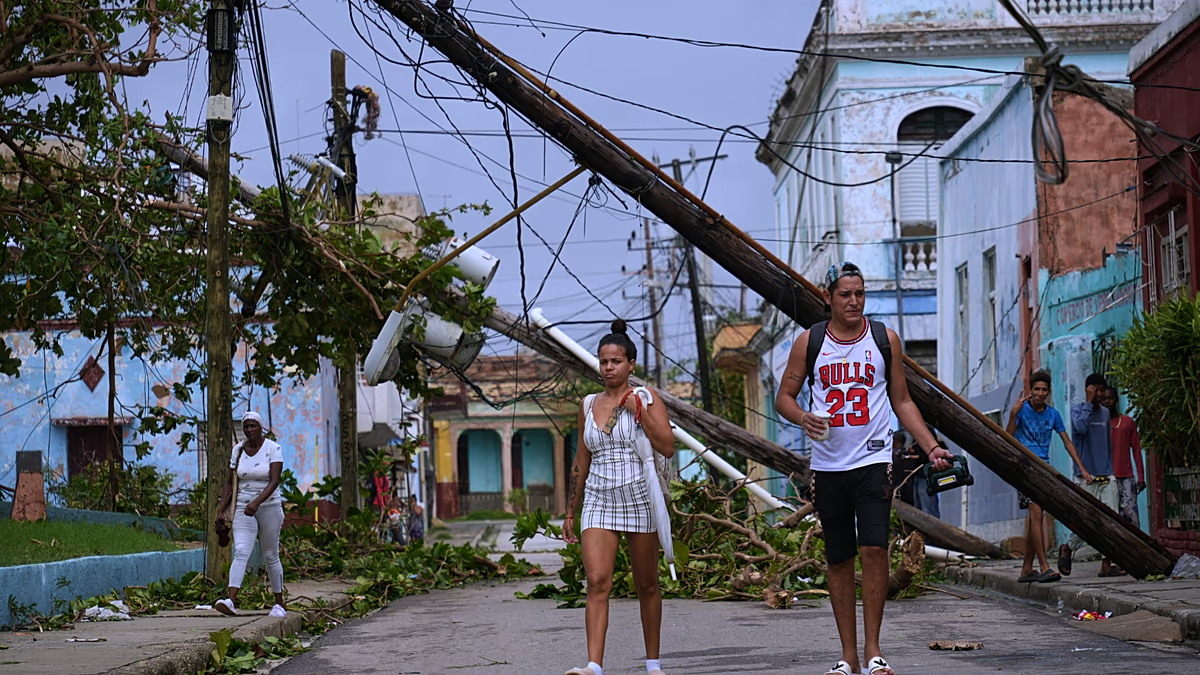International Tourists Safe as Jamaica Recovers from Hurricane Melissa
In the wake of the strongest storm to hit Jamaica in decades, there’s a collective sigh of relief as all 25,000 international visitors who were on the island when Hurricane Melissa made landfall on October 28 are confirmed safe and in good health. Tourism Minister Edmund Bartlett’s announcement brings welcome news amid the devastation caused by what has become the strongest storm worldwide this year. Despite this positive update, hundreds of tourists remain stranded as they await flights out of the country, with airports only beginning to resume operations after preventative closures ahead of the hurricane. The storm has left a trail of destruction not only across Jamaica but also in neighboring Caribbean nations including Cuba, Haiti, and the Dominican Republic, where combined fatalities have reached at least 34 people so far.
The island’s two main international gateways have experienced different recovery timelines. Norman Manley International Airport in Kingston has made promising progress, reopening for relief flights on Wednesday before cautiously restarting commercial services on Thursday morning. Meanwhile, Sangster International Airport in Montego Bay, the main entry point for tourists visiting Jamaica’s northern resort areas, remains closed with officials hoping to resume operations within days. Both airports have emphasized the importance of travelers confirming flight status directly with airlines before attempting to reach the terminals, as schedules continue to face severe disruption with dozens of cancellations persisting through the weekend. When Norman Manley reopened, it advised passengers to arrive earlier than usual to accommodate additional processing time for security and check-in procedures in the post-hurricane environment.
For the hundreds of travelers still unable to leave the island, patience has become a necessary virtue. European holiday company TUI has informed its customers that flights home would face delays of several days, while proactively positioning empty aircraft at nearby Caribbean airports to facilitate evacuations once Jamaica’s airports fully reopen. The company has cancelled all package holidays to Jamaica until November 2 as infrastructure recovers. Beyond air travel, Jamaica’s ports remain closed to shipping and cruise vessels, with major cruise lines including Carnival and Royal Caribbean having already rerouted their ships to alternative Caribbean destinations. Despite Hurricane Melissa moving on to affect other islands, Jamaica continues to experience stormy conditions, prompting officials to advise travelers to remain in safe locations due to ongoing hazards from downed power lines and widespread flooding.
Safety remains the priority for those still on the island, with both Jamaican authorities and international agencies providing guidance. The Jamaican government has published a list of hurricane shelters for those concerned about finding secure accommodation, while the UK Foreign Office has warned visitors to prepare for potential shortages of food, water, accommodation, and health services in the hurricane’s aftermath. Travelers are strongly encouraged to monitor updates from reliable weather sources like the Meteorological Service for Jamaica and the US National Hurricane Center, and to follow instructions from local authorities—particularly regarding any evacuation orders. Those on organized tours are advised to maintain contact with their tour operators for specific guidance tailored to their circumstances and accommodations.
For affected travelers, understanding the financial implications of this disruption is critical. Those whose flights or package holidays were officially cancelled by airlines or tour operators should be eligible for full refunds. However, insurance providers typically won’t cover additional costs like extended hotel stays resulting from the storm unless specific conditions are met. Importantly, travelers who decide against visiting Jamaica when their bookings remain active may not qualify for reimbursement without an official government travel warning, as this falls under “disinclination to travel.” Travel insurance can provide financial protection, but only for policies purchased before Melissa was officially named as a storm on October 21. Eligible claims may cover prepaid non-refundable expenses including flights, cruises, accommodations, and event tickets—provided certain conditions are met, such as destinations becoming uninhabitable or inaccessible, mandatory evacuations, or direct damage to one’s home from the hurricane.
Hurricane Melissa’s extraordinary intensity reflects the growing influence of climate change on extreme weather events. Described by some as the “storm of the century,” the hurricane has claimed eight lives in Jamaica, 25 in Haiti, and one in the Dominican Republic. Climate scientists point to warming ocean temperatures as a key factor fueling the storm’s rapid intensification. “We’re seeing a direct connection in attribution science with the temperature in the water and a climate change connection,” explains Bernadette Woods Placky, chief meteorologist for Climate Central. “When we see these storms go over this extremely warm water, it is more fuel for these storms to intensify rapidly and push to new levels.” Jamaica’s mountainous topography has likely exacerbated Melissa’s impact, as the slow-moving hurricane generated concentrated rainfall over specific areas, dramatically increasing flood risks. As recovery efforts continue across the region, this catastrophic event serves as another stark reminder of the increasing challenges posed by our changing climate to vulnerable island nations and the tourists who visit them.


